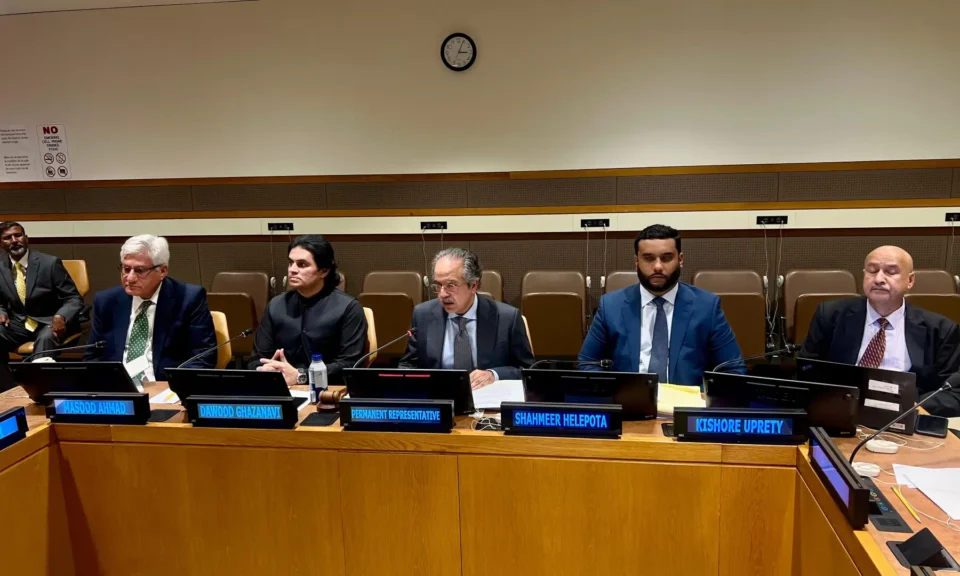UN Event Highlights Concerns Over India’s Indus Waters Treaty Suspension
At a high-level event hosted by Pakistan’s Mission to the United Nations in New York, speakers expressed concern over India’s recent decision to place the Indus Waters Treaty (IWT) in abeyance. Participants said the move raised questions about the sanctity of international agreements and could have serious humanitarian and regional consequences.
The event, titled “Indus Waters Treaty and Pakistan’s Water Crisis: Challenges and the Way Forward”, was jointly organized by the Permanent Mission of Pakistan to the UN and the Muslim-American Leadership Alliance (MALA).
Concerns Over Treaty Violation
India suspended its participation in the IWT following the April 22 incident in Pahalgam, Kashmir. Experts at the UN gathering described the step as a “violation of international law and human rights principles.” They also emphasized that water-sharing arrangements cannot be disrupted unilaterally.
Key Speakers and Messages
Pakistan’s Ambassador to the UN, Asim Iftikhar Ahmad, delivered the keynote address. He warned against the “weaponization of water,” stressing that water is a basic human right and that politicizing it could destabilize regional peace.
Deputy Permanent Representative Usman Jadoon underlined the humanitarian impact of undermining the treaty, highlighting risks such as food insecurity, displacement, and increased vulnerabilities for women and children.
Other notable speakers included:
-
Maha Khan, MALA chairperson, who called water security a “pressing threat to livelihoods and stability.”
-
Dr. Masood Ahmad, former World Bank specialist, who highlighted the need to improve irrigation and water efficiency systems.
-
Dawood Ghazanavi, Supreme Court lawyer, who stressed that nearly 45% of Pakistan’s livelihoods depend on the Indus River.
Court Rulings and International View
The Permanent Court of Arbitration (PCA) in The Hague has recently reaffirmed that the treaty remains valid and binding, stating that no party can suspend it unilaterally. Earlier this year, Pakistan’s Prime Minister also raised the issue at the Shanghai Cooperation Organisation (SCO) Summit, urging structured dialogue on water disputes.
Independent experts at the UN event agreed that while the IWT has long been a model of cooperation in South Asia, recent developments place its credibility under strain. They stressed that constructive engagement, adherence to legal frameworks, and improved water management systems are essential for ensuring peace and sustainable development in the region.

